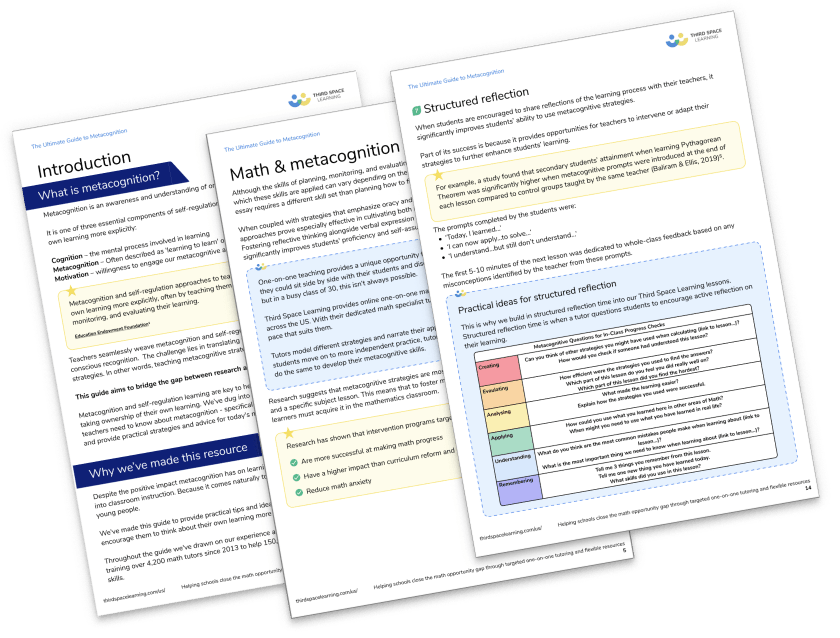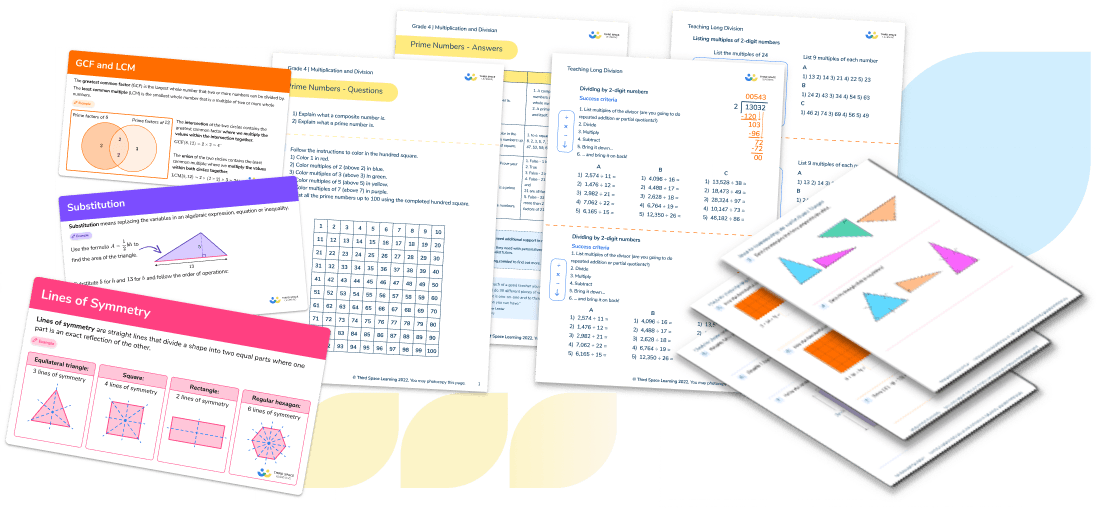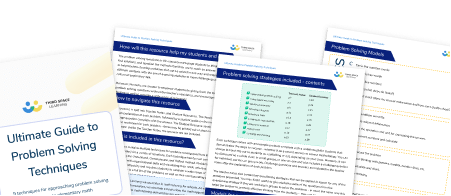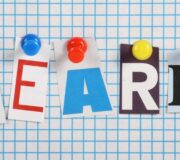Why Is Math Important? The Reasons Why You Can’t Go 1 Day Without Using Your Math Skills!
It’s a question that many of us have asked ourselves at one point or another, but “Why is math important?” is an important question for us to tackle here at Third Space Learning. In this post we will be looking through all of the reasons as to why we shouldn’t overlook the importance of math in our lives and how math is an essential life skill.
- Why is math important? How does it affect our everyday life?
- Math is crucial! It’s all around us in the real world…
- Math goes far beyond addition and subtraction
- Math is always taking place behind the scenes too!
- The importance of numeracy in childhood
- What if my child or students struggle with numeracy?
- Why is math so important: The benefits of learning math
- Practice makes perfect: Why it is important to study math regularly
- Misconceptions can make math mystifying in the long-term
- Studying math helps us to save time, money and effort
- Regular math practice can improve your intelligence
- Why here at Third Space Learning we think it is so important to teach math
The Ultimate Guide to Problem Solving Techniques
Download these 9 ready-to-go problem solving techniques that every elementary student should know
Download Free Now!Why is math important? How does it affect our everyday life?
You may have heard people say that the math they learned at school (specifically algebra or pythagoras’ theorem) is useless to them as adults, and that this has left them questioning the importance of mathematics.
However, numeracy and math is a far more powerful tool that is utilized far more often in daily life by everyone than we often realize.
Not always the angles of a triangle maybe, but there are calculations your brain will do fairly quickly without much thought if you have some simple math skills secured.
Math is crucial! It’s all around us in the real world…
You might find yourself asking “But why is math important?” when, for the 10,000th day in a row, you have no need to add up all the angles in a square, but in reality there isn’t a day that goes by when you won’t use basic math skills in one way or another.
When cooking, for example, you may need to double or half a recipe, or use fractions to add 2/3rds of the flour at the start and then the rest later. You mostly do this “by eye” but it is sound mathematical understanding which enables this skill.
Just look at how much math is required for this simple brownie recipe!
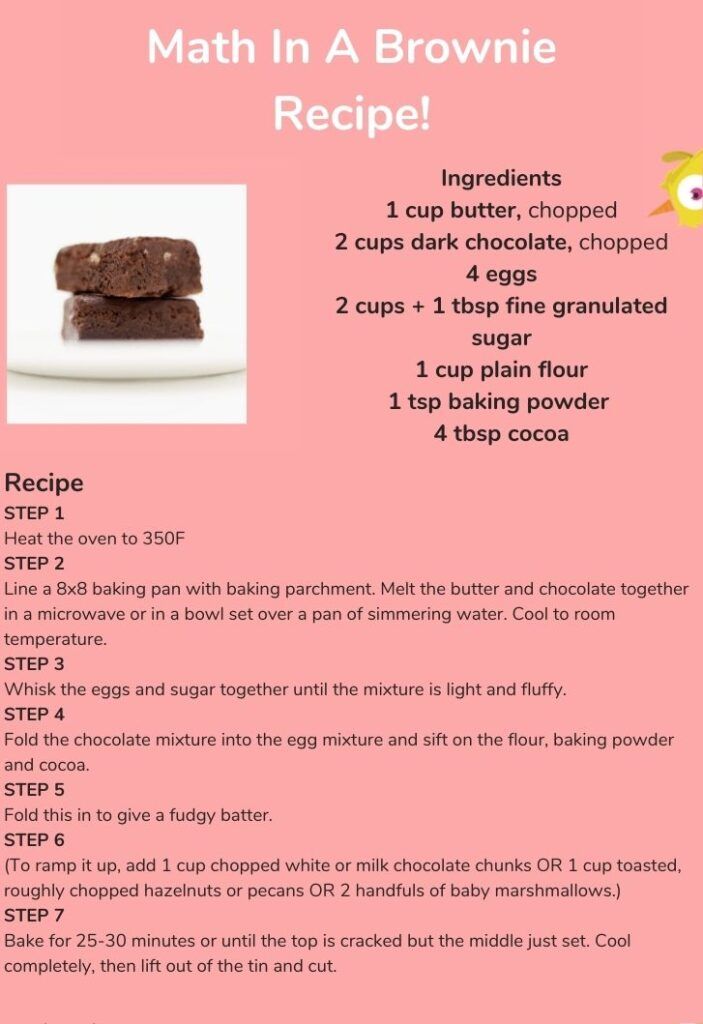
When out shopping you will use math to work out the best bargains on items. We may work out that the cost of three individual cans of beans is higher than the cost of a pack of four cans. So our math ability has saved us a couple dollars.
When we need to get somewhere we might be working out how far it is and then estimating the time it will take to get there, and using our time-telling skills to figure out what time to leave the house to get there on time. We might even work in a quick stop to the gas station for an extra challenge.
If you are doing some DIY around the house, you may be measuring walls, working out how many rolls of wallpaper to buy (saving more money when it is an expensive roll) and working out the total cost as you go.
Every pay day you probably notice if your tax is roughly right, you know how much your take home pay is, and you know how much your bills will cost and how much disposable income and savings you have.
Math comes in really handy when you want to take out a mortgage, open a savings account, or get a credit card. How much will you pay back? Is a loan or a credit card best for your needs? How much will it cost a month and can I afford it?
If you are into fitness you might work out how many reps of each exercise you are doing, you may count the calories lost and work out if you can go for a sweet treat in return!
In short, the number of ways we use math in our everyday lives is almost endless…
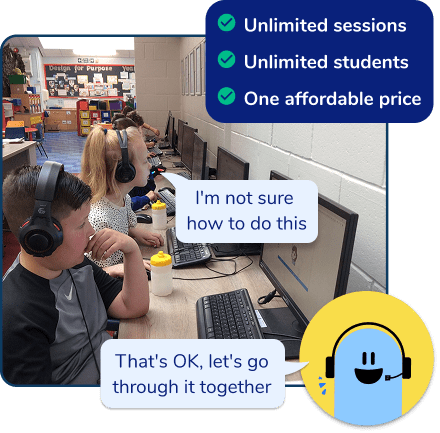
Meet Skye, the voice-based AI tutor making math success possible for every student.
Built by teachers and math experts, Skye uses the same pedagogy, curriculum and lesson structure as our traditional tutoring.
But, with more flexibility and a low cost, schools can scale online math tutoring to support every student who needs it.
Find out moreMath goes far beyond addition and subtraction
In addition to basic mathematical knowledge, learning mathematics involves a number of mathematical practices, as the Common Core State Standards dubs it, that are taught in tandem. These mathematical practices have benefits for the learners far beyond math and far beyond the classroom. Solving math problems requires problem-solving skills, analytical thinking and critical thinking. All of which are beneficial to students in real-life as they approach complex problems and as they approach working age- these skills are integral to jobs across different career fields. This is why math is such an important subject and math teachers have such an important role!
Further reading:
- 8 Common Core math examples
- How to help your 7-year-old with math
- How to help your 8-year-old with math
- How to help your 9-year-old with math
- How to help your 10-year-old with math
- How to help your 11-year-old with math
Math is always taking place behind the scenes too!
Math is also all around us in ways we cannot see. You can guarantee that any technology we use is utilizing math to work out both calculations (ATMs, Self-checkouts) and also as part of the programming and algorithms it uses to work – and also to target you for relevant advertising, in the case of social media.
We also use math to save our lives. If we need a certain dose of medication or to work out how often to take our pills. And our brains even do some really fast calculations to work out when it is safe to cross the road.
Without being a mathematician, we are still surrounded by math concepts, and you can see from just a few of the examples above that a low numeracy level may affect multiple aspects of your life.
People who have not had the chance to practice their numeracy skills early on in life find many of these things tricky and this can result in, at best, missing out on a few bargains, and, at worst, missing out on jobs and other opportunities which impact on their whole lives.
The importance of numeracy in childhood
The best way to ensure good mathematical skill and understanding in adults is repetition and opportunities to practice (even for five or ten minutes a day), starting from a very young age.
We know that low numeracy levels in children at school usually equates to low numeracy skills in adulthood and this contributes to a number of factors affecting lives – from unemployment to health implications.
Numeracy in childhood starts with concepts such as sizes – the big ball, the small ball, and grouping objects by their similarities and differences – all the red objects, or a set of vehicles, for example.
Children also start measuring things by eye such as filling their water bottle or looking to see if their sibling or classmates have more or less food than them.
You can encourage these skills in a number of ways including:
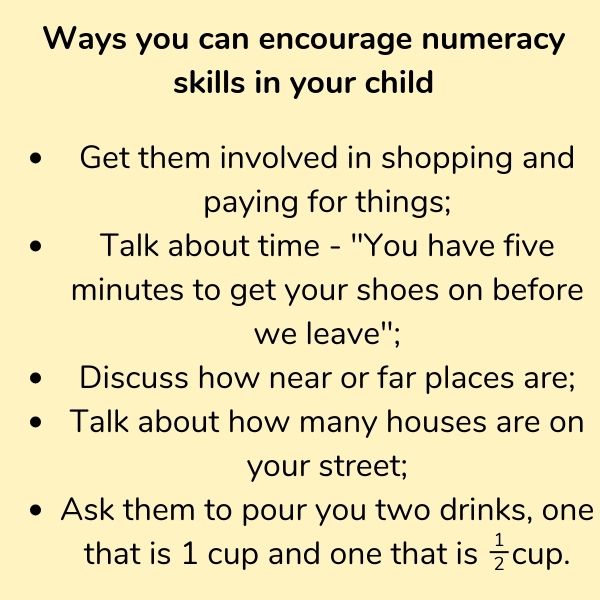
There are, of course, a huge number of ways you can help children practice their numeracy skills at home. These are just some of the ways you can help young brains to make mathematical sense of the world around them.
What if my child or students struggle with numeracy?
Children who struggle with numeracy are also likely to be children with social, emotional and behavioral difficulties, even taking into account factors such as background and general ability.
There seems to be more acceptance of “oh, he isn’t good at math” or, in adults, “I just don’t get math” than in any other subject, yet good numeracy skills have benefits all through our lives, day in and day out.
This makes the early teaching of math, and fast intervention in the case of struggling students, essential to set the right path for numeracy for life.
Why is math so important: The benefits of learning math
Without highlighting specific careers which use math, it is easier to look at how not learning math has a detrimental effect on our lives.
There is a lot of evidence which shows the negative impact of having a lack of numeracy skills – for example 65% of adult prisoners have numeracy skills at or below the level expected of an 11-year-old – so we can assume the opposite to be true: that good math skills have a positive impact.
Further to the examples of math in everyday life, there are benefits to being numerate.
Last, but not least, our ability to find bargains, spend wisely, be on time, and to work out multiple life decisions each day. On top of that there are, of course, careers where math is incredibly useful and often necessary.
There are jobs which use math in more traditional and obvious ways – architecture, science, computer programming, accounting and so on. But also there are careers which rely on math which may not be so obvious – sportsmen and women who calculate distance and speed, as well as angles and trajectory; and carpenters and builders for whom, a simple miscalculation, could cost them a job or their business.
The OECD (the Organization for Economic Co-operation and Development) has found a direct relationship between wage distribution and numeracy skills, which is a good motive for making math a part of everyday life from a young age!
Practice makes perfect: Why it is important to study math regularly
Although good mathematical skills and understanding are important to embed at a young age, it is also important to keep up the study and practice of math even if just in short ten minute bursts each day.
A great example of a quick math activity you can do with your child and students is the Number Facts Paper Flip which takes just 10 minutes!
We start, as children, to use mathematical concepts as part of speech very early on, but without an awareness of the mathematics behind them.
Children learn the difference between things we are close to or far away from. It is only through studying math that they can start to apply this to working out exactly how far away something is, or the impact on the scale and size of the object.
When studying math regularly they start to apply more in-depth knowledge and skills to their early understanding.
Misconceptions can make math mystifying in the long-term
It is also important in the study of math to remove any possible misconceptions which children can have when they learn math on their own as a natural part of growing up. This can help them to understand why math is so important.
It is vital that throughout their schooling they have opportunities to explore misconceptions and work through their understanding of these, finding new methods to work out what they thought they knew.
A very common example of this is when multiplying a number by ten. If we see lots of questions and answers such as 3 x 10 = 30, 5 x 10 = 50, we come to a natural conclusion that the pattern is “add a 0 at the end of the number when multiplying by ten.”
This is an understandable misconception as we, by our nature, look for patterns in things around us.
However, when the child is then given the calculation 5.4 x 10 and then simply add a zero, they will reach an answer of 5.40 which is incorrect – 54 would be the right answer.
Not only can this make it difficult for the child to move forward into more complex calculations, it can also massively knock their confidence and take a while for them to find their feet again with their understanding of numbers.
We must ensure, through the study of math, that we take no shortcuts at any age, as each step in numeracy builds on the last.
Studying math helps us to save time, money and effort
Studying math also allows us to find more efficient methods which save us time, and to work out math much quicker mentally than we would be able to by relying on paper and pencil, or a calculator.
You have heard, in the 21st Century, the argument that we no longer need to know a load of mental math as we all have calculators (smartphones) in our pockets.
However, it is not always obvious, even using a calculator, what we need to work out and which steps to go through, so knowing basic number skills by heart, such as times tables, is a key component.
An extreme example of when mental math would come to the forefront would be in the operating room. Nobody wants their surgeon to stop their work to use their smartphone to decide how much blood we can afford to lose before they intervene!
This might be an unlikely example, but we definitely want to have as many numeracy skills in our mental math toolkit as possible.
This reduces cognitive load, which (put simply) has an impact on how much brain power we need to complete simple calculations, how flustered we become and therefore how likely we are to make mistakes in our calculations.
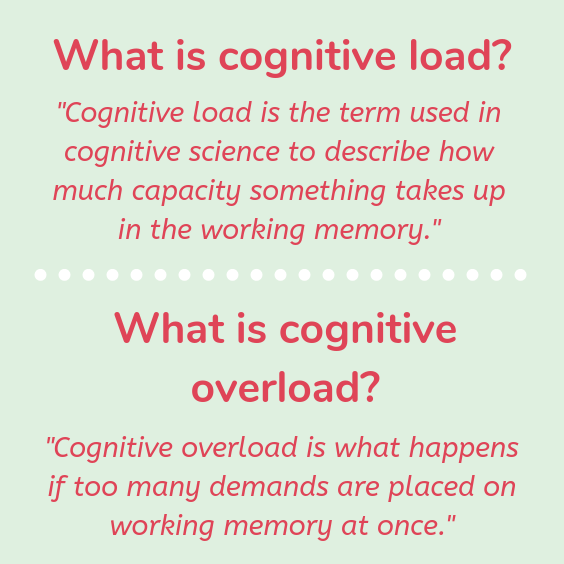
Even in the most everyday of examples, most of us do not take out our smartphones to work out every offer in the supermarket to decide which one is best. Even when we do use our smartphones or navigation systems to work out journey times and distances for us, we make our own decisions on whether to take route A or route B, and our reasons for that choice.
We are all still humans and our own knowledge added to the math is what helps us to make good decisions for ourselves.
Regular math practice can improve your intelligence
Numeracy which we use in everyday life works best for us when we don’t really have to think about it – which makes fluency in math crucial to ensure we have the math we need at our fingertips when we need it most.
Regular studying – whether of new concepts or simply revising and revisiting things we have learnt before – helps our gray matter and has been shown to improve IQ over time.
This is just one of the reasons as to why math is important!
Just as there is no age at which it is too young to start learning math, there is also no age at which you are too old to learn or practice math.
Studies with older adults and retired adults show that brain training, using puzzles and quick math recall such as times tables, can have an impact on brain function and awareness which has a positive effect on health and wellbeing.
Why here at Third Space Learning we think it is so important to teach math
To conclude simply:
“We teach math to ensure that every child has the numeracy skills they need to feel confident in their math ability and thrive later in life.”
We know this can have a positive impact, or (even more importantly) we know that low numeracy levels correlate with poor outcomes in life in many areas – not simply in our career choices and opportunities, and we want to help as many children as possible avoid this outcome.
We know that if children are taught mathematics from an early age, in ways which are relevant and appropriate to their age and stage, we can build up their skills over time and eliminate misconceptions which are the key reasons why many people are “turned off” from math early on.
We must, as a society, aim to get past the idea that people are “mathematically minded” or not. We all are, by nature, mathematically minded when we are young. Good math teaching and practice are what keep us all mathematically minded as we grow up – ensuring a level playing field for everyone.
Read more
- Understanding Math Anxiety – A Parent’s Guide
- Metacognitive Strategies: Using them at home
- What is Growth Mindset and How Can You Help Children To Develop It?
- What To Do When Your Child Is Struggling With Learning Math: Advice For Teachers And Parents
Do you have students who need extra support in math?
Skye—our AI math tutor built by experienced teachers—provides students with personalized one-on-one, spoken instruction that helps them master concepts, close skill gaps, and gain confidence.
Since 2013, we’ve delivered over 2 million hours of math lessons to more than 170,000 students, guiding them toward higher math achievement.
Discover how our AI math tutoring can boost student success, or see how our math programs can support your school’s goals:
– 3rd grade tutoring
– 4th grade tutoring
– 5th grade tutoring
– 6th grade tutoring
– 7th grade tutoring
– 8th grade tutoring
